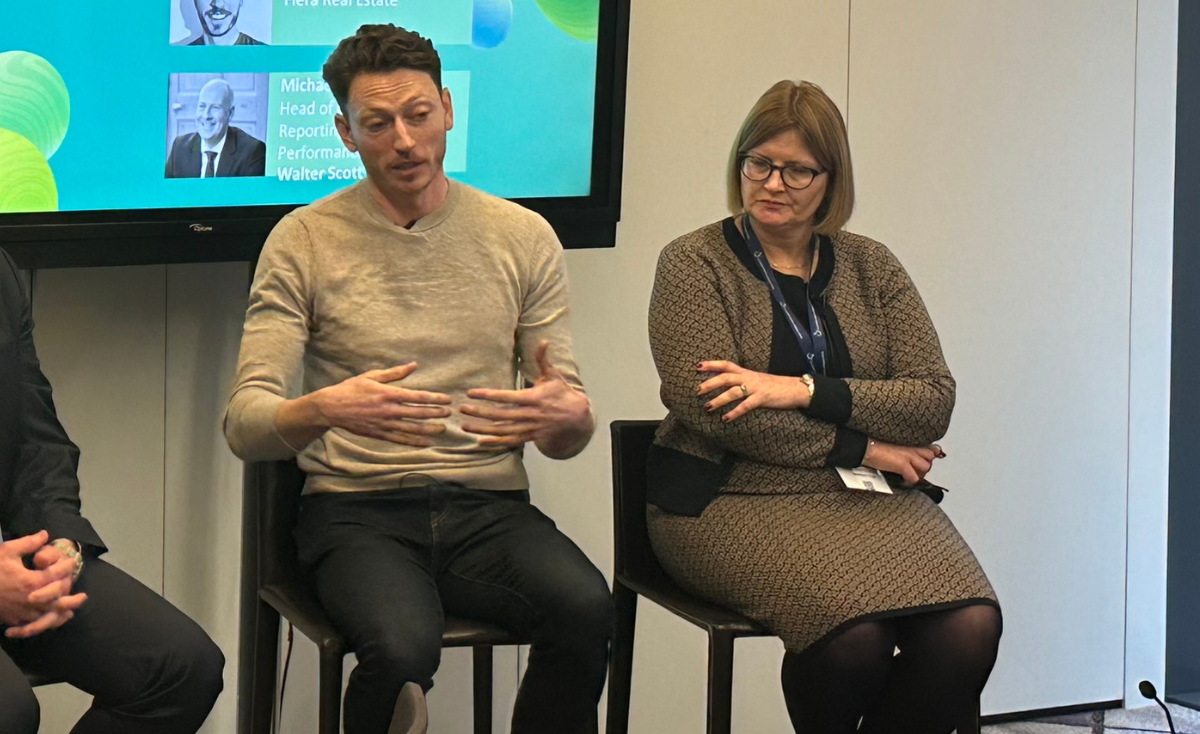How to create growth in a fee-compressed environment
Michael Germano, Chief Operating Officer & Head of North America for Newton Investment Management (a BNY Mellon group company), discusses the future of investment operations in a fee-compressed world.
Andrew Putwain POSTED ON 6/26/2023 10:00:00 AM
 Michael Germano, Chief Operating Officer & Head of North America for Newton Investment Management (a BNY Mellon group company).
Michael Germano, Chief Operating Officer & Head of North America for Newton Investment Management (a BNY Mellon group company).
Andrew Putwain: Fee compression poses challenges for profitability. What approaches or business models do you think can help mitigate these challenges while still delivering value to clients and stakeholders?
Michael Germano: As an investment manager, we need to focus on delivering the best client experience. To achieve this, investment managers could benefit from outsourcing certain functions that are not core competencies or critical to achieving differentiated client outcomes to service providers that specialise in those areas. Of course, we need to work closely with our outsourced service providers to ensure that they are adding value, and that they are able to move and adapt quickly to requests to service new assets—for example, more complex over-the-counter (OTC) derivatives. As the investment manager, accountability for operational tasks, and how the business reacts to them, ultimately falls on our shoulders. And oversight is imperative, particularly as the outcomes directly affect our clients.
"A company can build a suite of reports and encourage new clients to choose from a set of established templates, instead of developing bespoke reports."
From an operational perspective, investment managers need to obtain the right talent, the right personnel to skilfully negotiate commercial agreements with service providers—honing in on the appropriate key performance indicators (KPIs) and service-level agreements (SLAs) to obtain high-quality results from third parties. At the same time, investment firms need to continuously improve cost efficiencies, enabling the business to invest in the areas that drive alpha.
To do this, you need to build processes that enable your company to quickly and easily scale up without adding headcount. Take client reporting as an example—a company can build a suite of reports and encourage new clients to choose from a set of established templates, instead of developing bespoke reports that require a great deal of time and effort.
As many asset management firms are new to the reality of lower margins driving the need to search for efficiencies, including outsourcing, and few leaders have true hands-on experience, external consultancies could play a key role for many firms. These firms should be vetting prospective consultant teams to ensure that they not only have successful track records but also the ability to retain their talent—that the staff that worked on those positive engagements would be the staff assigned to their projects. Also, it is important for firms to designate an internal lead at the start of each project, to be the day-to-day liaison with the external consultant and to retain any lessons learned for future engagements.
Investment managers also need to hold their investment teams to account, challenging them on their actual use of all the data systems and services available to them and ensuring that any new access requests are justified.
Andrew: Is driving growth the key to overcoming these fee pressures? Or are there other ideas you have for overcoming fee compression?
Michael: Both driving growth and other strategies are important for sustained success. A company should always be working to reduce its cost of goods sold (COGS) via efficiencies, whether through outsourcing or through continual improvements in automation and other processes related to in-house operations.
"Optimising data can support better outcomes for internal teams and clients and can help drive the growth we are aiming to achieve."
Having more efficient processes, and lower COGS, should allow the firm to offer more competitive pricing and win more business. No one in the industry can cut expenses to success in a constant state of outflow and fee reduction.
To expand on my previous point, we need to have an internal offering, where possible, that we can roll out to clients. Automation is key, and having an excellent grasp of our data, and easy access to that data, is also essential—I think data governance is a real enabler here. We are all realising that data is a valuable and strategic enterprise asset. The foundation for effective decision-making, performance and customer service is accurate, timely and readily available data. Optimising data (e.g., predictive sales and client retention models) can support better outcomes for internal teams and clients and can help drive the growth we are aiming to achieve.
Andrew: As technology continues to evolve, how do you see its role in shaping the future of investment operations? What specific technologies or tools do you believe will be instrumental in driving growth and innovation in this field?
Michael: In my view, we should focus on the potential of new technology in the following areas:
- To automate manual tasks,
- To enable the delivery of more customised solutions,
- To improve automation and systematic controls, reducing operational errors, and
- To allow us to accommodate smaller account minimums in non-pooled vehicles at cost-effective rates.
As an industry, we need to better understand the full cost of taking on a client before signing an investment management agreement (IMA).
Andrew: What models or trends do you see as having the potential to impact investment operations in the coming years, and how can firms build a business case to adopt these new strategies?
Michael: I believe it will become more common to outsource the non-differentiated aspects of investment operations. This could extend all the way to trade execution—it is becoming more common in the market for investment managers to outsource dealing.
However, with outsourcing comes regulation, and I expect to see more regulatory focus on outsourcing in the coming years. This could result in additional work for companies and increased administrative costs.
Andrew: In a rapidly changing regulatory environment, what considerations and strategies should Chief Operating Officers prioritise to ensure compliance and adaptability while walking the tightrope of fee pressure and innovation/growth?
Michael: Chief Operating Officers (COOs) should consider developing governance frameworks for outsourcing early, as well as having people dedicated to becoming experts at vendor oversight. It will become increasingly important in this changing environment to have a dedicated team managing the more administrative aspects of oversight.
"Maintaining operational expertise can allow investment managers to hold outsourced service providers accountable, monitor their practices and help them improve their processes."
Regulators will expect teams overseeing vendors to have an in-depth understanding of the subject matter so that they can challenge outsourced providers when necessary. This is something to keep in mind as an investment manager—even when functions are outsourced, the firm will need to maintain the knowledge and experience in-house to effectively oversee those operations. Implementing the right data solution to track all vendor contracts and usage data will also be key. Doing so will enable COOs to stay on top of what is driving the vendor spend, and if there are any inefficiencies that could be addressed.
Maintaining internal operational expertise can allow investment managers to hold outsourced service providers accountable, monitor their practices and potentially help them improve their processes. If done correctly, outsourced functions could also be run internally when necessary—otherwise, retaining these subject matter experts could be a challenge, if oversight is their only responsibility.
This will free up time in their workday to accomplish more fulfilling tasks and hopefully encourage less turnover.
Michael Germano will be speaking at the Fund Operator Summit | Europe 2023 on 19 September in London on the topic of “The future of investment operations: Exploring and building the business case for new models and strategies to drive growth and innovation in a fee-compressed world”.
For more information, including how to register, please click here.
Please Sign In or Register to leave a Comment.
SUBSCRIBE
Get the recent popular stories straight into your inbox




